Summer School
Digital Supply Chain and Logistics Management
July 1-5, 2019
Assessment of Summer School 2019


New digital technologies requires companies to change their business models and rethink the way they design their supply chain. Several mega trends have a heavy influence on the way the supply chain strategy is designed. The continuing growth of the rural areas worldwide and the pressure to reduce carbon emissions as well as regulations of traffic for socioeconomic reasons add to the challenges that logistics are facing and lead towards the concept of shared economy.
At the same time customer expectations are growing and changing: the online trend of the last years has led to increasing service expectations. Recent trends indicate growing customer service expectations combined with much more smaller, distributed but detailed customer orders. There is also a big trend towards further customization that drives the strong growth of and constant changes in the SKU portfolio. The online enable transparency combined with easy online access to multiple of options regarding where to shop and what to buy drives the competition between supply chains.
These trends are transforming the supply chain from a technology-enabled procedure to a technology-centric one. It is therefore not surprising that companies continue to deal with ongoing trends in the areas of Artificial Intelligence (AI), Internet of Things (IoT) or Blockchain.
The aim of this five-day Summer School is to familiarize graduate students with state-of-the-art advances and trends in digital supply chain including digital infrastructures, digital sourcing, production and transportation management and digital demand management. This course will strive to evaluate current trends, growth opportunities, global patterns and niche markets, within the area of Digital Logistics. In fulfilling these objectives, the course will use a holistic approach, and rely on seminars from expert guest lecturer and practitioners from industrial supporters. The target audience includes graduate students, graduates and junior researchers (MSc, PhD students, postdocs) pursuing careers involving Operations, Business Logistics and Management, or just interested in learning more about new research trends and challenges as well as best business practices in the field.
The scope of the summer school is to establish a communication, knowledge-based grid that will:
Advance research in digital supply chains and physical internet
Provide students with global research and international leadership experience
Contribute to the transformation and advancement of supply chain education to all participants
Illustrate students on real-word aspects related to digital supply chain management and engineering
The aim of this five-day Summer School is to familiarize graduate students with state-of-the-art advances and trends in digital supply chain including digital infrastructures, digital sourcing, production and transportation management and digital demand management. This course will strive to evaluate current trends, growth opportunities, global patterns and niche markets, within the area of Digital Logistics. In fulfilling these objectives, the course will use a holistic approach, and rely on seminars from expert guest lecturer and practitioners from industrial supporters.
Thessaloniki is the second largest city in Greece, one of the oldest in Europe extending over 12 km along the shore of the Thermaicos Gulf. Thessaloniki is one of the Greek cities with the richest histories, and following the end of the First Balkan War has been considered the most influential city in Macedonia. It is a dazzling and lively city with a centuries-long history.
Thessaloniki lies on the northern fringe of the Thermaicos Gulf on its eastern coast and is bound by Mount Chortiatis on its southeast. The metropolitan area of the city extends around an area of 1,455.62 km2 (562.02 sq mi), which includes many beachside and hilly suburbs, while its densest part, which makes up the urban area of the city and what Thessalonians usually refer to as the "City of Thessaloniki", can be divided roughly into 3 parts, the northwestern, the central and the southeastern.
On the attached file you will find information regarding:
For information and instructions for reaching CERTH/HIT via public or private transportation please click the file below:
While the general nature of the course is not heavily analytical, basic economic, IT and management knowledge is essential.
Strong English reading; writing and comprehension skills are necessary. Assignments and Case study analysis require strong writing ability, while assigned articles are often complex and difficult to grasp with just one reading.

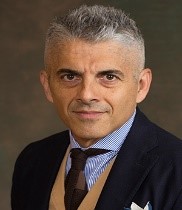



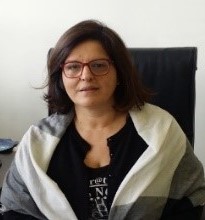


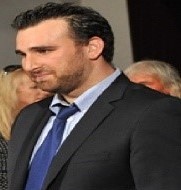
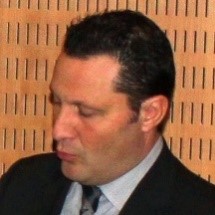

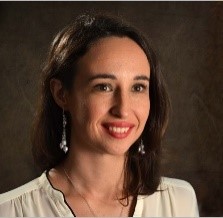

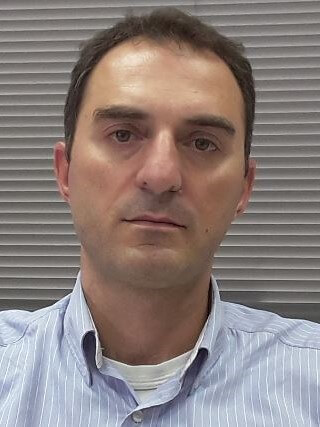
The typical daily schedule of the School includes topic presentation sessions in morning, in which experienced instructors will outline the state of the art regarding the specific topic as well as future trends and challenges. In the afternoon, managers from industry will present their related experience and will interact with the students. These meeting up with the industry sessions could be combined with industrial visits in the wider Thessaloniki region. Finally, the daily schedule close with a lab session where the students will work in groups on different project assignments. These student projects will be presented on an open session on Friday afternoon.
Interactions among participants is fundamental to achieve the full potential of the Summer School and social activities will be planned to provide ample opportunity to exchange experiences and ideas as well as to initiate collaborations that could be fostered in the future. A continuous educational assessment of the courses ascertains the high quality of the summer school.
| Monday, 1st July | Tuesday, 2nd July | Wednesday, 3rd July | Thursday, 4th July | Friday, 5th July | ||
|---|---|---|---|---|---|---|
| Venue | CERTH PREMISSES - Amphitheatre | CERTH PREMISSES - IMET (HIT) | KEDEK AUTH, Balkan Center Room 3.1 -A | KEDEK AUTH, Balkan Center Room 3.1 -A | CERTH PREMISSES - IMET (HIT) | |
| 9:00 - 9:30 | Dr. Georgia Aifadopoulou / Prof. Dimitrios Vlachos / Prof. Eleftherios Iakovou Welcome Notes Developing a Digital Supply Chain Strategic Mindset |
9:30 - 10:15 | Bill Eisele Multimodal Investments Decisions |
Thorsten Huelsmann Data sovereignty and trusted data governance as enabler for AI in digital logistics and supply chain |
Dr. Naoum Tsolakis Towards Agriculture 4.0: Digital Twins for Water Stewardship in Farming Operations // robots in agri-field operations inspired by a real problem in India |
Dr. Georgia Aifadopoulou Federated Logistics Platforms |
| 9:45 - 10:30 | Dr. Eleftherios Iakovou Industry 4.0 & Logistics 4.0 |
10:15 - 11:00 | Bill Eisele Multimodal Investments Decisions |
Thorsten Huelsmann Data sovereignty and trusted data governance as enabler for AI in digital logistics and supply chain |
Dr. Naoum Tsolakis Exploring Emerging Supply Network Configurations Enabled by Renewable Feedstocks and Novel Processing Technologies |
Dr. Georgia Aifadopoulou On demand logistics |
| 10:30 - 11:00 | Coffee Break | 11:00 - | Coffee Break | |||
| 11:00 - 13:30 | Inaugural Event Competence Center Event for Business & Logistics Challenges |
11:30-12:15 | Aljosja Beije Blockchain and Supply Chain Management: concepts, strategies and use-cases |
Dr. Marko Petkovic Integer programming with applications to warehouse optimization and scheduling problems |
Olivera Grljević Text mining for demand sensing |
Dr. Dimitrios Bechtsis / Dr. Dimitrios Vlachos IoT & Autonomous technologies |
| 12:15- 13:00 | Aljosja Beije Blockchain and Supply Chain Management: concepts, strategies and use-cases |
Dr. Ioannis Mallidis Forecasting in Industry 4.0 |
Olivera Grljević Text mining for demand sensing |
Dr. Dimitrios Bechtsis IoT & Autonomous technologies |
||
| 13:00 - 14:00 | Lunch Break | |||||
| 13:30 - 14:00 | Lunch Break | 14:00 - 14:45 | Dr. Josep Maria Salanova Grau Digital Cities - Thessaloniki Smart Mobility Living Lab |
Apostolos Bizakis Port Terminal Operating Systems in the digital age |
Vasilis Loulos Digital Supply Chains and Logistics in Chemical Industry: Best Practices from Syngenta |
Students project presentation |
| 14:00 - 14:45 | Juan Carlos Villa Implementing Blockchain-Based Port Community System: the Port of Veracruz Proof-of-Concept |
14:45 - 15:30 | Dr. Josep Maria Salanova Grau Digital Cities - Thessaloniki Smart Mobility Living Lab |
Apostolos Bizakis Port Terminal Operating Systems in the digital age |
Vasilis Loulos Digital Supply Chains and Logistics in Chemical Industry: Best Practices from Syngenta |
Students project presentation |
| 14:45 - 15:30 | Juan Carlos Villa Impact of Internet of Things (IoT) on Supply Chain Performance |
15:30 - 16:00 | Coffee Break | |||
| 15:30 - 16:00 | Coffee Break | |||||
| 16:00- 17:30 | Students Lad | 16:00- 17:30 | Students Lab | Students Lab | Students Lab | End of Summer School |
| Thessaloniki Tour | Social Dinner | Visit to Museum | Free Time | |||
| Industry 4.0 Logistics 4.0 |
Novelties in Logistics | Case Studies | Competence Center |

AEOLIX Logistics and business community awareness event
AEOLIX (Architecture for European Logistics Information exchange), is a platform for connecting logistics information systems of different characteristics, intra- and cross-company, for immediate exchange of information in support of logistics-related decisions.
Under the AEOLIX initiative, the “Thessaloniki Intelligent Logistics hub” has been developed enabled two innovative logistics services. The first service refers to the development of a Virtual Freight Center (VFC) providing warehouse sharing capabilities and increasing awareness for new logistics options, strategic opportunities and new business models. The second service focuses on B2B online tool for cargo bundling, matching supply and demand between exporters and forwarders/ truck owners. These two services bring together an ecosystem of logistics service providers and production companies with the aim of offering digital transport and logistics services that meet the ecosystem requirements.
The results of the AEOLIX evaluation demonstrated that the platform and the tools should be always available, providing network security, system integration and information traceability . Even though the platform is easy to use, it requires knowledge and capacity building in the use of new and digital technologies in supply chain and logistics.
In this framework, CERTH - HIT in cooperation with the business community and particularly with the logistics ecosystem, decided the following:
On Monday, 1st of July will take place the competence center event where business stakeholders will discuss about Cooperation for Innovation and Growth of Transport & Logistics.
The 1st International Summer School on Digital Supply Chain and Logistics Management, organized in Thessaloniki from Aristotle University of Thessaloniki, the Hellenic Institute of Transport and Texas A&M University will take place from 1st of July till 5th of July, 2019.

This project has received funding for the European Union's Horizon 2020 research and innovation programme under grant agreement No 690797. Project started Sep 2016